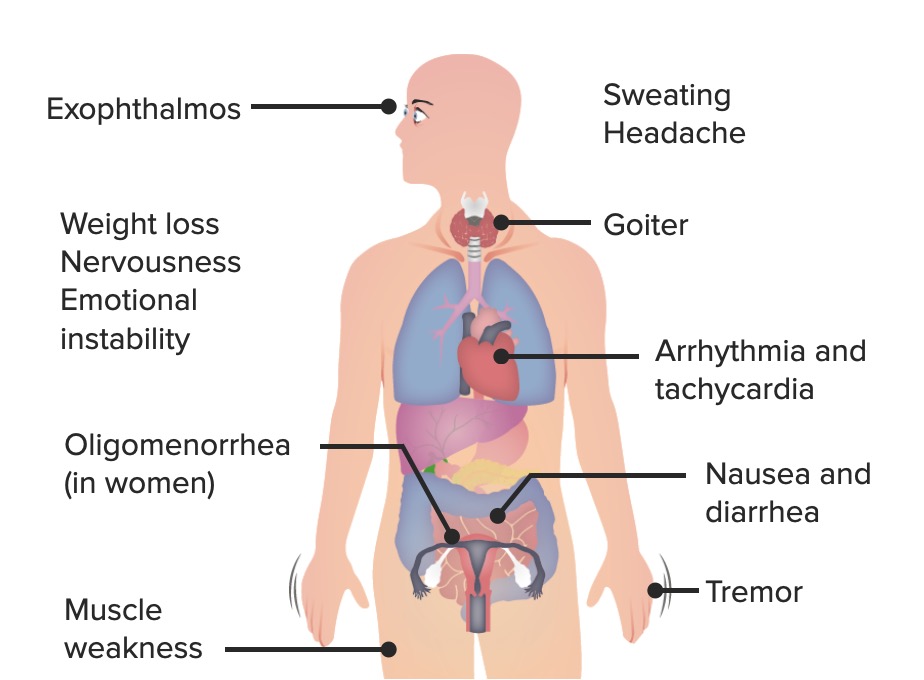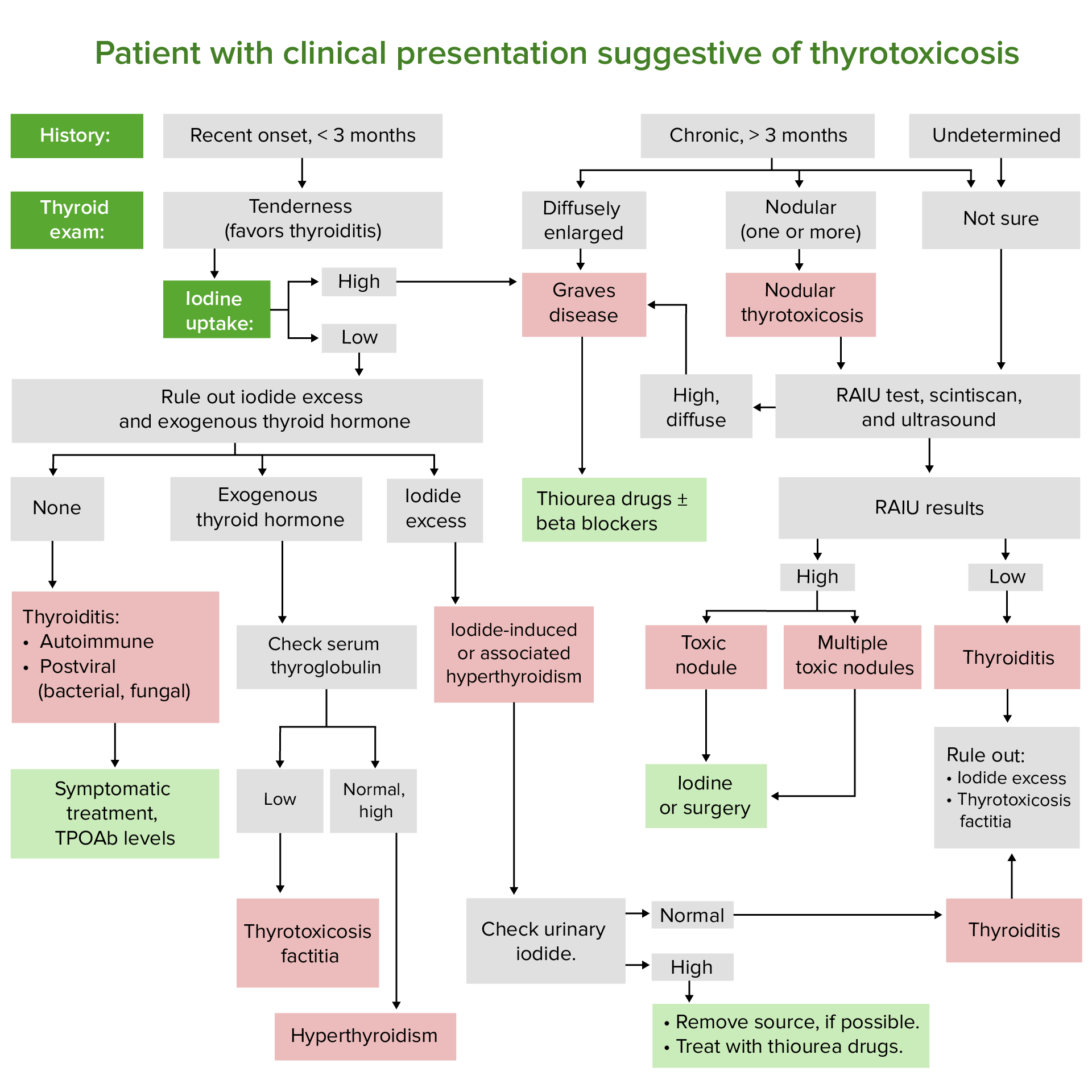Playlist
Show Playlist
Hide Playlist
Thyroid Storm with Case
-
Slides Thyroid Disease.pdf
-
Download Lecture Overview
00:01 In this case, a 19 year old man was admitted to the hospital with acute ruptured appendicitis three days ago. 00:08 He has a history of Graves' disease previously treated with methimazole and propranolol. 00:14 On exam, his temperature is 39 degrees celsius, his blood pressure is a 100/50 mm Hg and his heart rate a 125 beats per minute and irregular. 00:25 He is confused, diaphoretic and warm to the touch. 00:29 His thyroid gland is enlarged but not tender. 00:33 He has lid lag and bilateral hand tremor on exam. 00:38 What is the most likely diagnosis? Here we have a young man with a history of Graves' disease after admission to the hospital with appendicitis. 00:47 We also note that he is not taking any medications. 00:51 On exam, he has a fever, a low blood pressure and tachycardia with an irregular heart rhythm suggesting atrial fibrillation and cardiovascular shock. 01:02 He has enlarged, non-tender thyroid gland with lid lag and a hand tremor - all suggestive of hyperthyroidism and recurrence of his Graves' disease. 01:12 The most likely cause of this presentation which is extremely dramatic, manifesting with the presence of shock is thyroid storm. 01:21 Thyroid storm is a rare condition and is a severe manifestation of thyrotoxicosis with a life threatening secondary systemic decompensation. 01:31 Clinically, the patients may have increased temperature, they may have significant tachycardia and heart failure, they may have irregular heart rhythms in the form of atrial fibrillation. 01:41 Nausea, vomiting, diarrhea or jaundice may accompany their condition. 01:45 Neurologic disturbances including increased agitation, emotional liability, confusion, paranoia and psychosis which all may progress to coma. 01:57 This occurs most commonly when Graves' disease is coupled with a precipitating factor like a severe infection, surgery, a myocardial infarction, radioactive iodine treatment or in pregnancy. 02:11 The mortality rate for this condition is 15 to 20% For patients who present in thyroid storm, always find the precipitating cause. 02:21 Treat the patients with thionamide drugs, provide beta blockers to reduce the tachycardia and iodine drops in high dose or high dose glucocorticoids can also be used to mitigate the symptoms.
About the Lecture
The lecture Thyroid Storm with Case by Michael Lazarus, MD is from the course Thyroid Disorders. It contains the following chapters:
- Case 1.8
- Thyroid Storm – Rare
Included Quiz Questions
What additional component is necessary to diagnose thyroid storm in a patient with known thyrotoxicosis?
- Shock
- Fever
- New-onset atrial fibrillation
- Myocardial infarction
- Inability to tolerate oral intake
What is the mainstay of treatment for thyroid storm?
- Treat the precipitating trigger
- Metoprolol
- Methimazole
- Iodine repletion
- Methylprednisolone
What is the most likely diagnosis for the case described below? A 19-year-old man was admitted to the hospital with acute ruptured appendicitis 3 days ago. Medical history: Graves disease previously treated with methimazole and propranolol. Physical examination: temperature of 39.0°C (102.2°F), blood pressure of 100/50 mm Hg, heart rate of 125 beats/min and irregular. He is confused, diaphoretic, and warm to the touch, with an enlarged but nontender thyroid gland, lid lag, and a bilateral hand tremor.
- Thyroid storm
- Toxic multinodular goiter
- Toxic adenoma
- Hashitoxicosis
Customer reviews
5,0 of 5 stars
| 5 Stars |
|
5 |
| 4 Stars |
|
0 |
| 3 Stars |
|
0 |
| 2 Stars |
|
0 |
| 1 Star |
|
0 |





